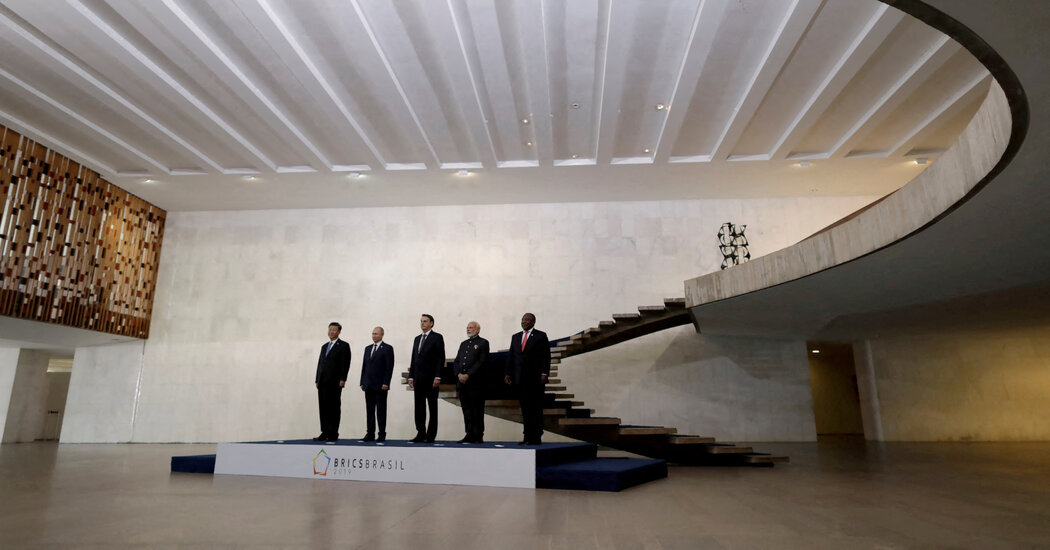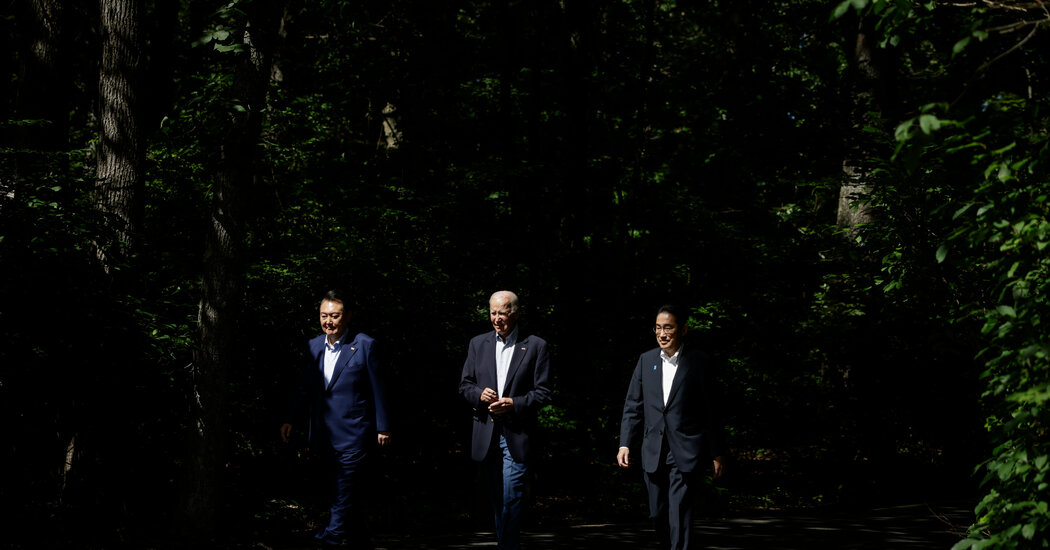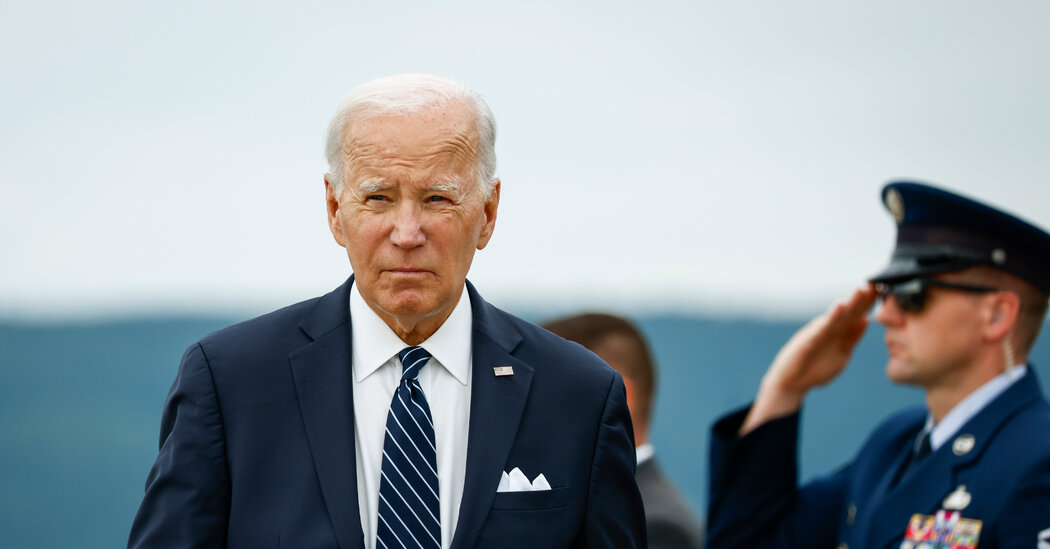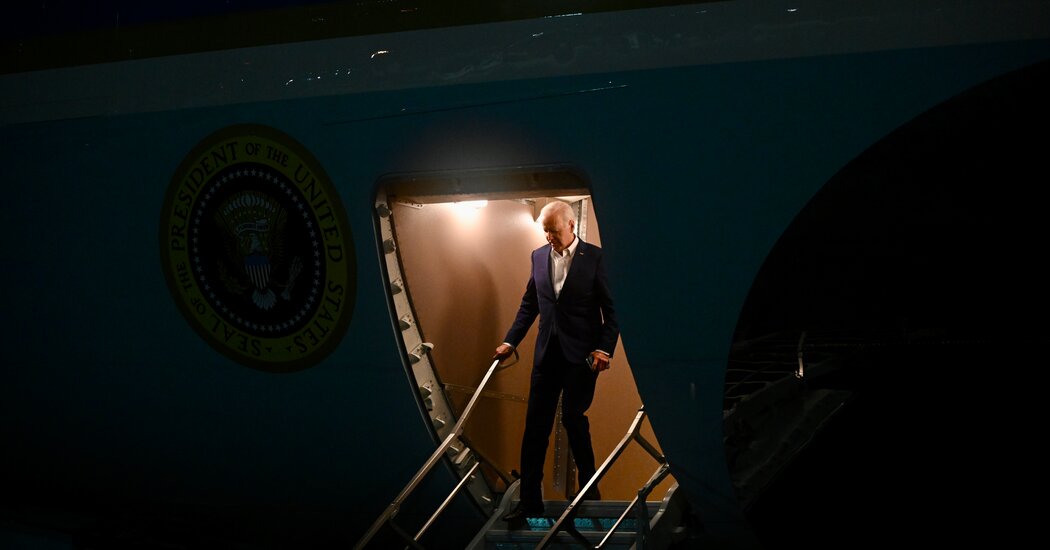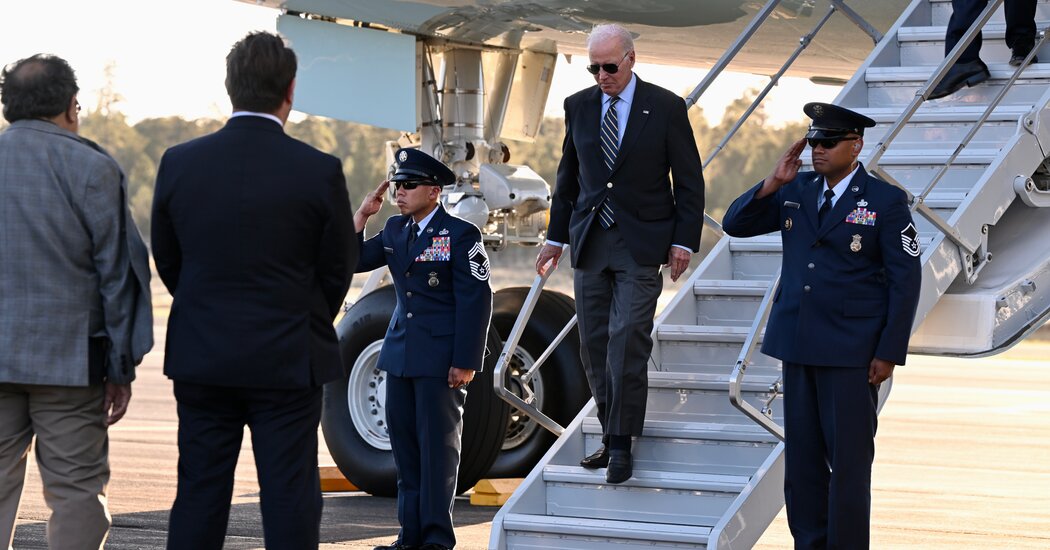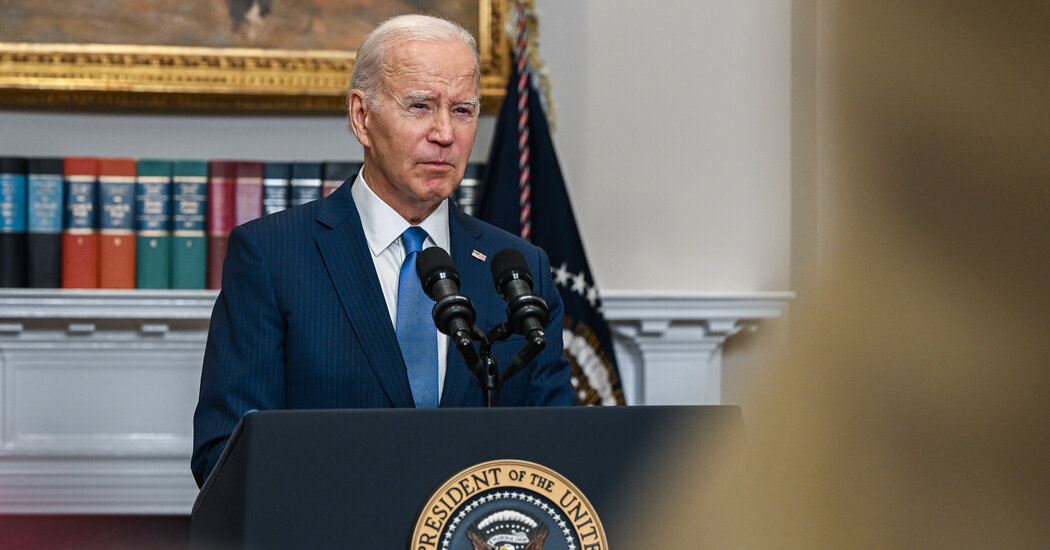Produced by ‘The Ezra Klein Show’ The global decarbonization effort is colliding headfirst with the realities of great power politics. China currently controls more than 75 percent of the world’s electric vehicle battery and solar photovoltaic manufacturing supply chains. It also processes the bulk of the so-called critical minerals, like lithium, cobalt and graphite, that are essential to building out clean energy technologies. There is no clean energy revolution without China. What would happen if China decided to weaponize its clean energy resources in the same way Russia recently weaponized…
Tag: United States International Relations
Could U.S. Toughness on Chinese Business Have Unintended Consequences?
At a moment when Washington is trying to reset its tense relationship with China, states across the country are leaning into anti-Chinese sentiment and crafting or enacting sweeping rules aimed at severing economic ties with Beijing. The measures, in places like Florida, Utah and South Carolina, are part of a growing political push to make the United States less economically dependent on China and to limit Chinese investment over concerns that it poses a national security risk. Those concerns are shared by the Biden administration, which has been trying to…
BRICS Debates Adding New Members
The group of nations known as BRICS — Brazil, Russia, India, China and South Africa — represents 40 percent of the world’s population and a quarter of the world’s economy. Now it is considering expanding, in a push to be seen as a credible counterweight to Western-led forums like the G7 group of advanced nations. But the challenge for the club is that it is as divergent as it is large, and hindered by sometimes conflicting interests and internal rivalries. It comprises the world’s largest authoritarian state (China) and its…
U.S.-Japan-South Korea Security Pact Likely to Deepen China’s Dismay
Ever since members of the North Atlantic Treaty Organization sprang into action to help Ukraine try to thwart Russia’s invasion last year, China has warned about a similar U.S.-led security alliance forming in Asia that would seek to hobble Beijing’s ambitions and provoke a confrontation. President Biden’s Camp David summit on Friday with the leaders of Japan and South Korea most likely reinforces Beijing’s perception. The talks saw Japan and South Korea put aside their historical animosities to forge a defense pact with the United States aimed at deterring Chinese…
U.S. Seals Security Pact With Japan and South Korea as Threats Loom
The new three-way security pact sealed by President Biden and the leaders of Japan and South Korea at Camp David on Friday was forged with threats by China and North Korea in mind. But there was one other possible factor driving the diplomatic breakthrough: Donald J. Trump. While the former president’s name appeared nowhere in the “Camp David Principles” that the leaders issued at the presidential retreat, one of the subtexts was the possibility that he could return to power in next year’s election and disrupt ties with America’s two…
Intelligence Agencies Warn Foreign Spies Are Targeting U.S. Space Companies
Chinese and Russian intelligence agencies are targeting American private space companies, attempting to steal critical technologies and preparing cyberattacks aimed at degrading U.S. satellite capabilities during a conflict or emergency, according to a new warning by American intelligence agencies. The National Counterintelligence and Security Center, the F.B.I. and the Air Force issued a new advisory to American companies Friday morning. The broad warning to industry said that foreign intelligence services could be targeting space firms, their employees and the contractors that serve those companies. Space companies’ data and intellectual property…
At Camp David Summit, Japan, South Korea and U.S. Present a United Front
President Biden plans to cement a newly fortified three-way alliance with Japan and South Korea during a landmark summit at Camp David on Friday, bridging generations of friction between the two Asian powers to forge mutual security arrangements in the face of an increasingly assertive China. Mr. Biden will host Prime Minister Fumio Kishida of Japan and President Yoon Suk Yeol of South Korea at the presidential retreat in Maryland, the first time he has invited foreign leaders there and the first time the leaders of the three countries will…
Biden Describes China as a Time Bomb Over Economic Problems
President Biden warned on Thursday that China’s struggles with high unemployment and an aging work force make the country a “ticking time bomb” at the heart of the world economy and a potential threat to other nations. “When bad folks have problems, they do bad things,” the president told a group of donors at a fund-raiser in Park City, Utah. Mr. Biden’s comments are the latest example of the president’s willingness to criticize China — often during fund-raising events with contributors to his presidential campaign — even as his administration…
Biden Orders Ban on U.S. Investments in China’s Sensitive High-Tech Industries
President Biden escalated his confrontation with China on Wednesday by signing an executive order banning American investments in key technology industries that could be used to enhance Beijing’s military capabilities, the latest in a series of moves putting further distance between the world’s two largest economies. The order will prohibit venture capital and private equity firms from pumping money into Chinese efforts to develop semiconductors and other microelectronics, quantum computers and certain artificial intelligence applications. Administration officials stressed that the move was tailored to guard national security, but China is…
Biden to Restrict Investments in China, Citing National Security Threats
The Biden administration plans on Wednesday to issue new restrictions on American investments in certain advanced industries in China, according to people familiar with the deliberations, a move that supporters have described as necessary to protect national security but that will undoubtedly rankle Beijing. The measure would be one of the first significant steps the United States has taken in its economic clash with China to clamp down on financial flows. It could set the stage for more restrictions on investments between the two countries in the years to come.…


